South Korean embassy’s mask donation enrages Iranians as Seoul refuses to release frozen assets
Iranian social media users have sharply rebuked the South Korean embassy in Tehran over the donation of merely 2,000 face masks to a private Iranian hospital to help protect health personnel and patients against COVID-19, pointing out that the move comes whilst billions of dollars of the Islamic Republic’s funds remain frozen in the East Asian nation’s banks.
“Iranians do not need the negligible amount of masks you have bothered to donate. It is worth mentioning that Iran is now an exporter of masks itself,” a user wrote on Twitter. “It would rather be very civilized to release the Iranian nation’s assets instead.”
Another user tweeted that “Atieh Hospital should not have accepted such humiliation, [which] allowed the embassy of the Republic of Korea to ridicule us after blocking billions of dollars of Iranians’ funds.”
Pointing out that Iran is currently exporting masks, the user said the hospital’s officials “should act wisely, send back the masks and respond befittingly to the offense; otherwise, [the hospital] must be compelled to do so.”
The public anger came after South Korea’s embassy in Tehran announced via Twitter that the country’s ambassador, Yun Kanghyeon, donated 2,000 masks to Atieh Hospital during a visit to the hospital in order to “help the Iranian people overcome COVID-19.”
According to Journalist Sara Massoumi, South Korea, out of the United States’ fear, has frozen Iranian assets worth billions of dollars and has helped Washington to press ahead with its medical and drug terrorism against Iran — a nation of more than 80 million people.
“How come you are now talking about helping Iranian people with 2,000 masks?” she asked.
Moreover, Iranian academic and political analyst Seyed Mohammad Marandi also criticized South Korea for preventing Tehran to use its financial resources.
“The South Korean regime has confiscated $8 billion of Iranian assets after consuming Iranian fuel. Seoul helps Trump/Biden murder Iranians as the Iranian government battles Corona. Now the Korean embassy insults the Iranian people by giving 2,000 masks to a PRIVATE HOSPITAL,” he wrote on his Twitter page.
The #SouthKorean regime has confiscated $8 billion of Iranian assets after consuming Iranian fuel.#Seoul helps Trump/Biden murder Iranians as the Iranian government battles #Corona.
— Seyed Mohammad Marandi (@s_m_marandi) November 1, 2021
Now the #Korean embassy insults the Iranian people by giving 2,000 masks to a PRIVATE HOSPITAL. https://t.co/A2r46EDpi0
Last month, Iranian Foreign Minister Hossein Amir-Abdollahian warned that Tehran will not stop the Central Bank of Iran (CBI) from filing a lawsuit against South Korea over the freezing of Iranian assets in its banks under US pressure if Seoul fails to take practical strides to unblock the funds.
“The US pressure [on South Korea] is a fact, but we can no longer wear a smile and turn a blind eye to it,” he said in an interview with IRIB TV 1 television network on October 2, in response to a question about Iran’s frozen assets in South Korea and his telephone conversation with his South Korean counterpart, Chung Eui-yong, on the issue.
“The Korean side is worried that the CBI is set to lodge a complaint. We negotiated an agreement during the conversation, and I am waiting to see the results. I told him (Chung) that this is unacceptable for our people since we have been waiting for three years, and lip service would not help resolve the issue if your actions fail to yield objective and practical results,” Amir-Abdollahian said.
Iranian authorities have said on several occasions that they expect South Korea to do more on the release of nearly $8.5 billion blocked illegally at two South Korean banks under the pretext of the United States’ sanctions against the Islamic Republic.
It had been previously agreed for the funds to be used by Iran towards the purchase of humanitarian items, something that has again been prevented as a result of South Korea’s commitment to honoring the sanctions.
Tehran has been returning Seoul’s refusal towards cooperation by exercising restrictions on imports from South Korea.
On the other hand, the US, on several occasions, has thanked Seoul for cooperating in implementing its so-called maximum pressure campaign against the Islamic Republic.
Early last month, US State Department spokesman Ned Price said Washington appreciates the Republic of Korea’s “vigorous enforcement of existing sanctions” against Tehran.
“Those sanctions do remain in effect, as you know, until and unless we are able to reach that mutual return to compliance” with the 2015 Iran nuclear deal, Price told a press briefing on October 7, referring to the historic agreement that was unilaterally ditched by the United States in 2018.
Russia downs over 40 Ukrainian drones as Putin vows 'destruction' on Kiev
VIDEO | Yemen: A bone in Israeli neck
D-8’s role in Iran’s economy after Cairo summit
China slams US as ‘war-addicted’ threat to global security
China ‘firmly opposes’ US military aid to Taiwan
VIDEO | Press TV's News Headlines
President Yoon Suk Yeol to be removed from office
At least 19 Gazans killed by Israeli airstrikes since dawn: Medics



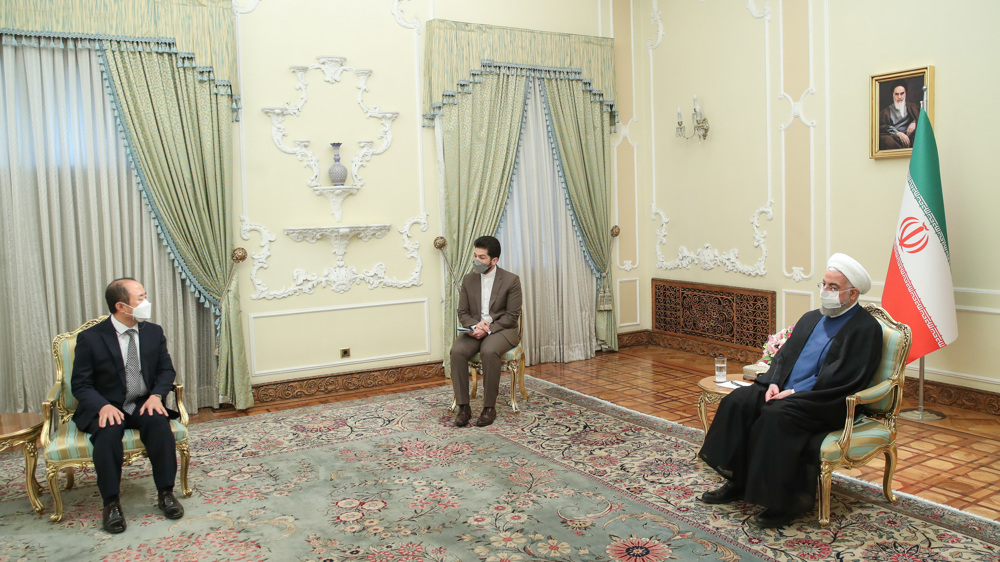
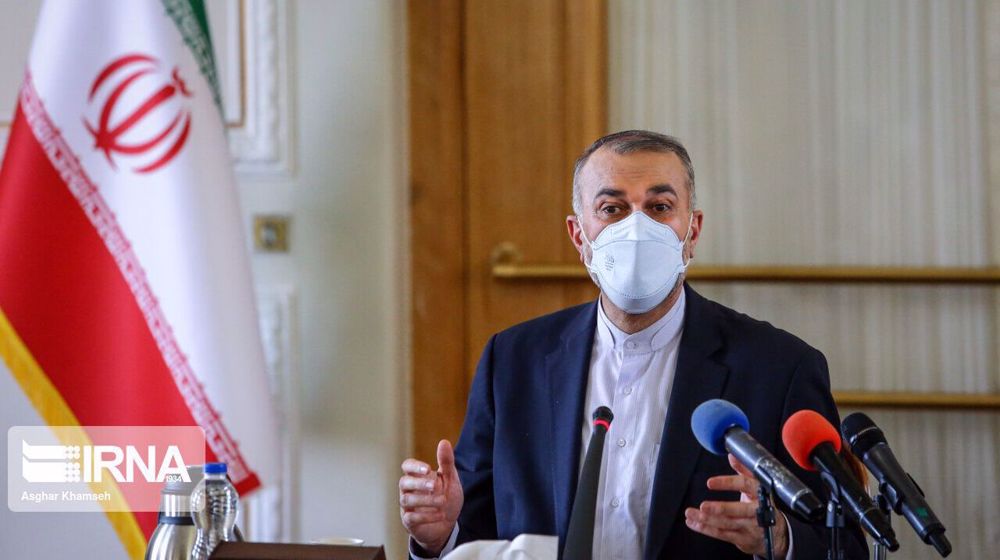
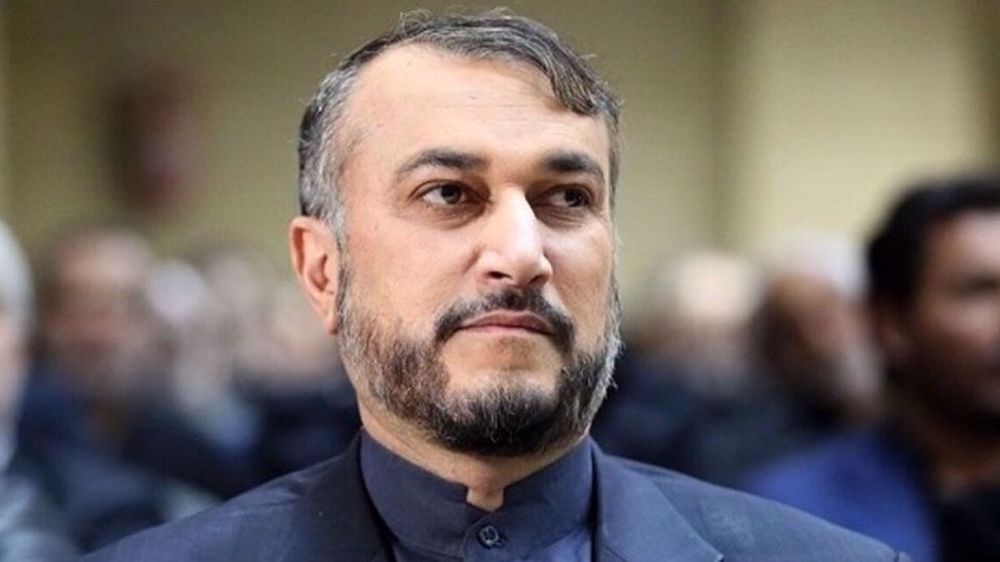






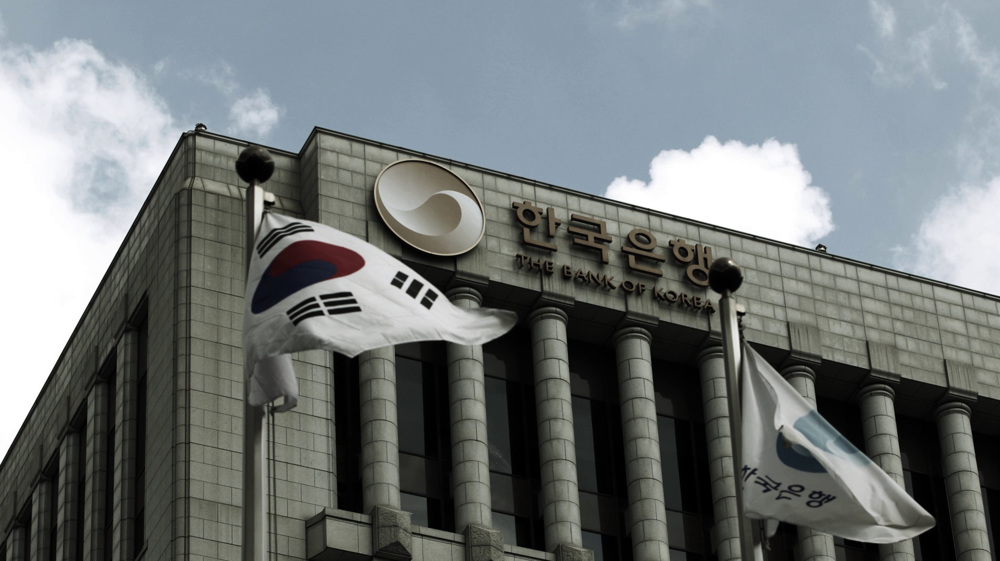
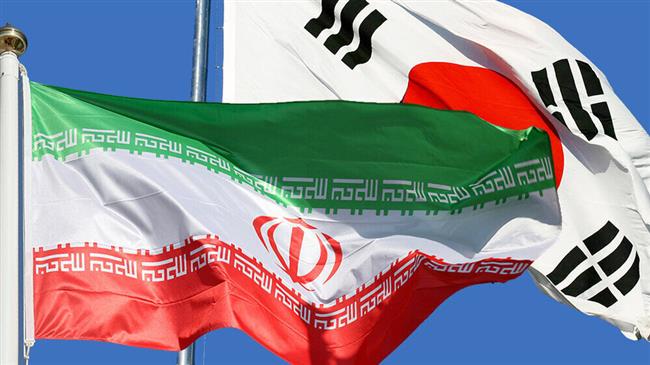
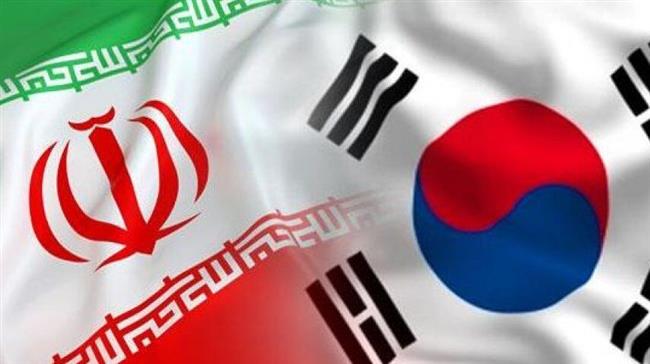
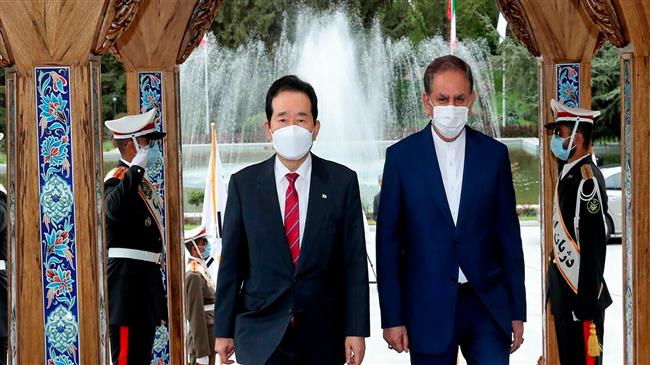
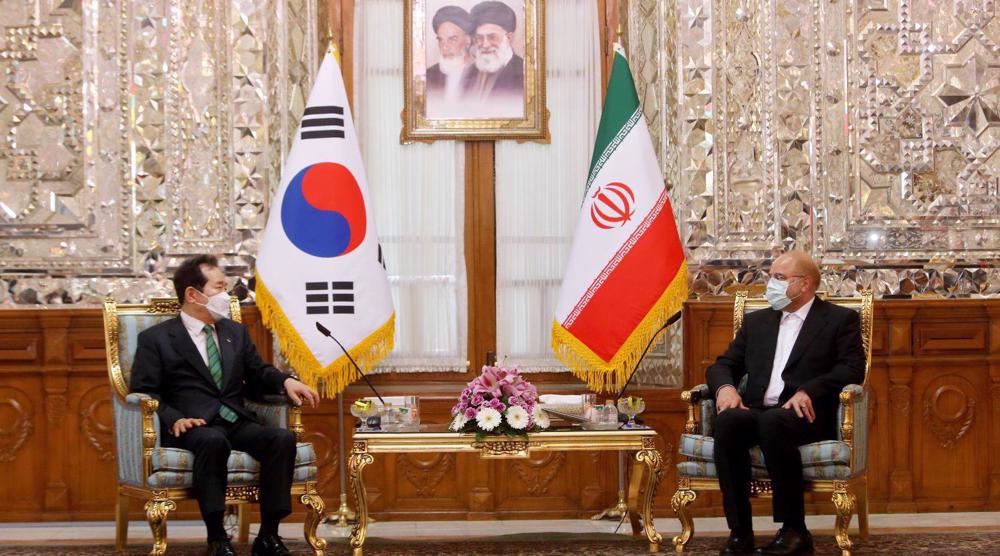
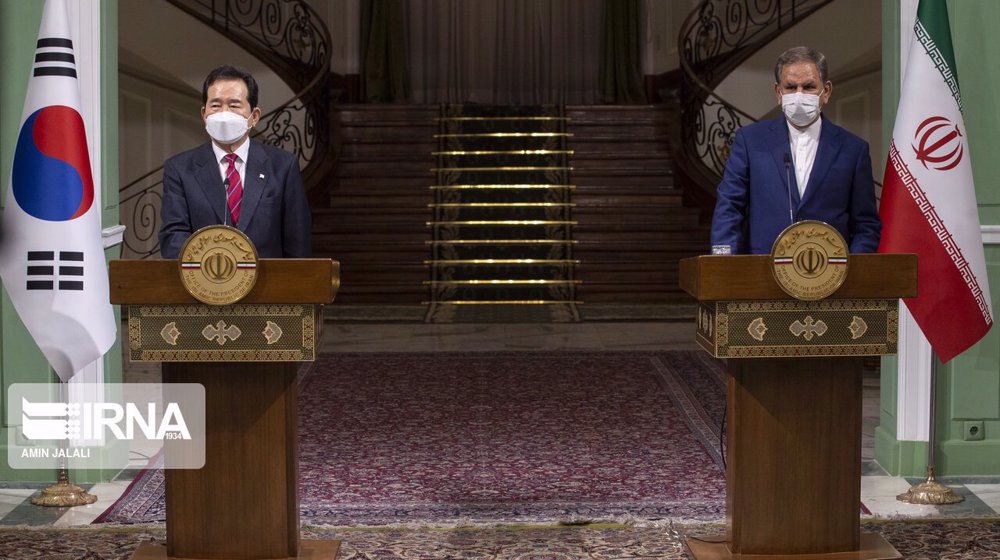
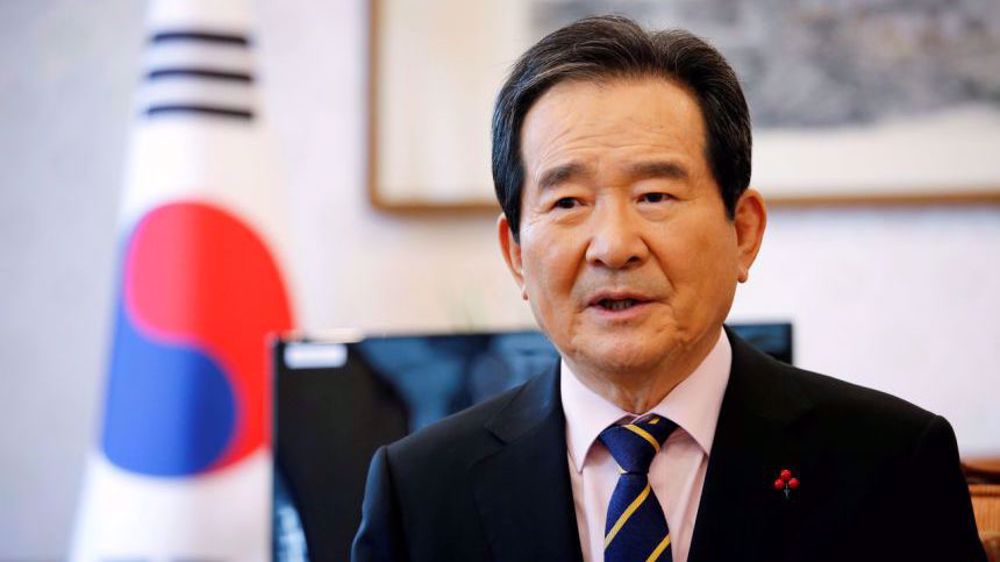
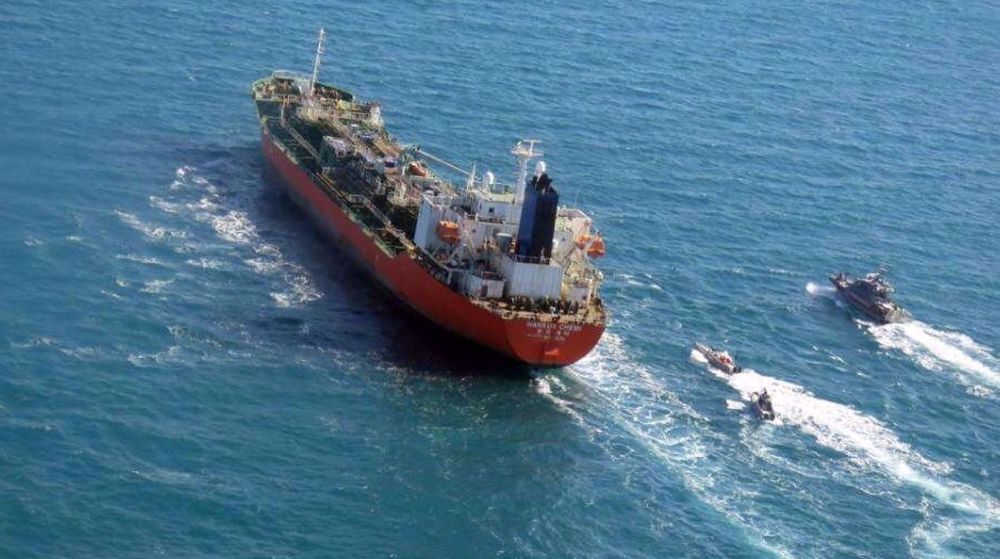
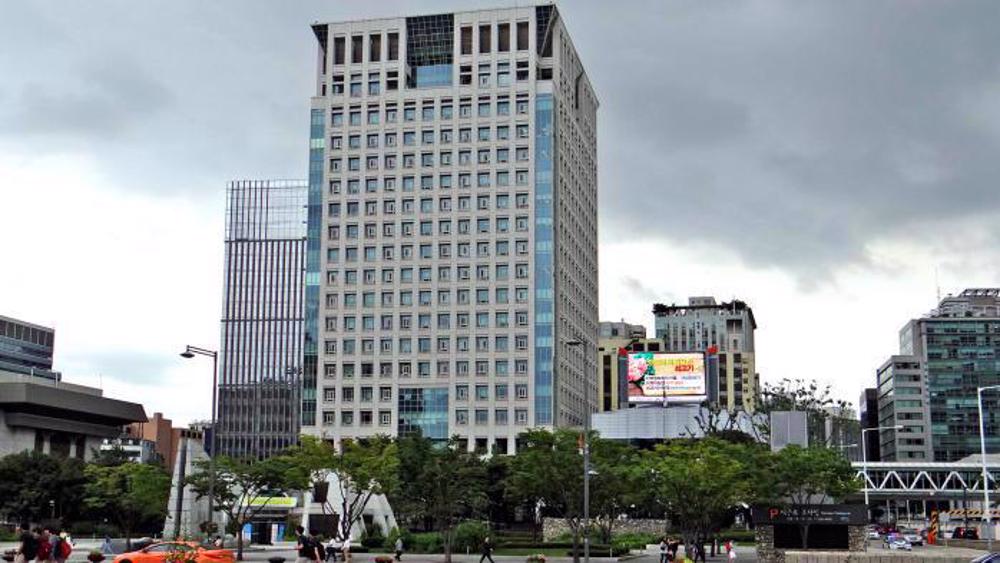
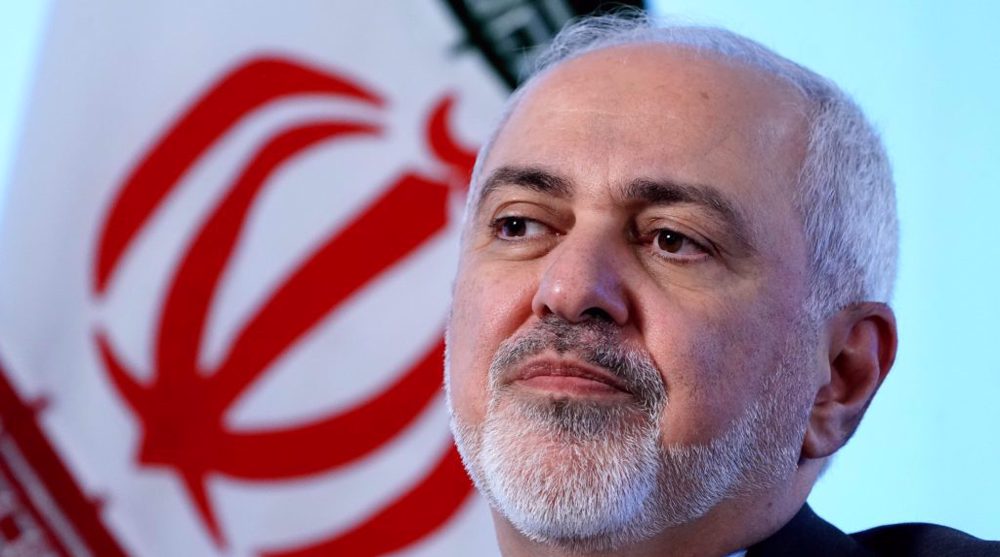

 This makes it easy to access the Press TV website
This makes it easy to access the Press TV website